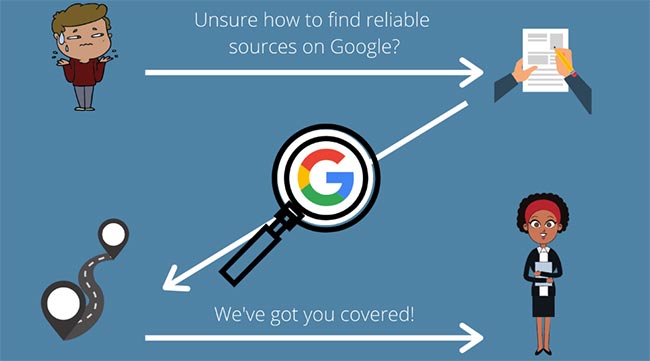
Apr 10, 2020
Blog Academic Institutions How to Find Reliable Research on Google
Research is the foundation of any great project, product and manifestation of ideas. And when it comes to conducting research, there are a handful of ways to gather the data you need. Our best recommendation is to use reliable market research.
Primary data is also a crucial component of your project (remember, it’s the crust of your market research pizza), but collecting it isn’t always an option. That’s when we look for alternative methods to gathering information.
One such method is using Google in a strategic way. While we wrote a blog on why Google isn’t a replacement for formal, scholarly research, it can be a great place to start when beginning a project.
You just need to know what key words to use in search queries and what to look for in a source to determine whether you can use that data.
What Keywords Do I Use?
It can be a bit overwhelming to figure out what words or phrases will yield the search results you need. There are ways to maneuver yourself around this issue so that you’re not spending most of your time frustrated by your lack of results.
What To Look For In A Source
Reliable information comes from reliable sources. While this is obvious, it can be frustrating because it’s always an extra step to make sure the data you’re finding is reputable. However, there are some tricks that can help streamline the process. We’ve outlined the top three below.
Google Hacks
As the saying goes, everything’s on the internet. As we’ve established, this is helpful and a bit of a pain. However, there are some not always obvious ways to use Google to find what you need in a more efficient and time-friendly manner. Here are a few of our favorites:
Clara Mouawad is the content writer at BCC Research. She contributes to our blog, social media, email marketing and more.

Do you ever struggle with what to say to a professor in an email? Writing an ema...

At this time of year, many of you are reviewing your budget and analyzing your m...

Happy Summer to our academic librarian audience! I hope you get to enjoy a bit o...

We are your trusted research partner, providing actionable insights and custom consulting across life sciences, advanced materials, and technology. Allow BCC Research to nurture your smartest business decisions today, tomorrow, and beyond.
Contact UsBCC Research provides objective, unbiased measurement and assessment of market opportunities with detailed market research reports. Our experienced industry analysts assess growth opportunities, market sizing, technologies, applications, supply chains and companies with the singular goal of helping you make informed business decisions, free of noise and hype.